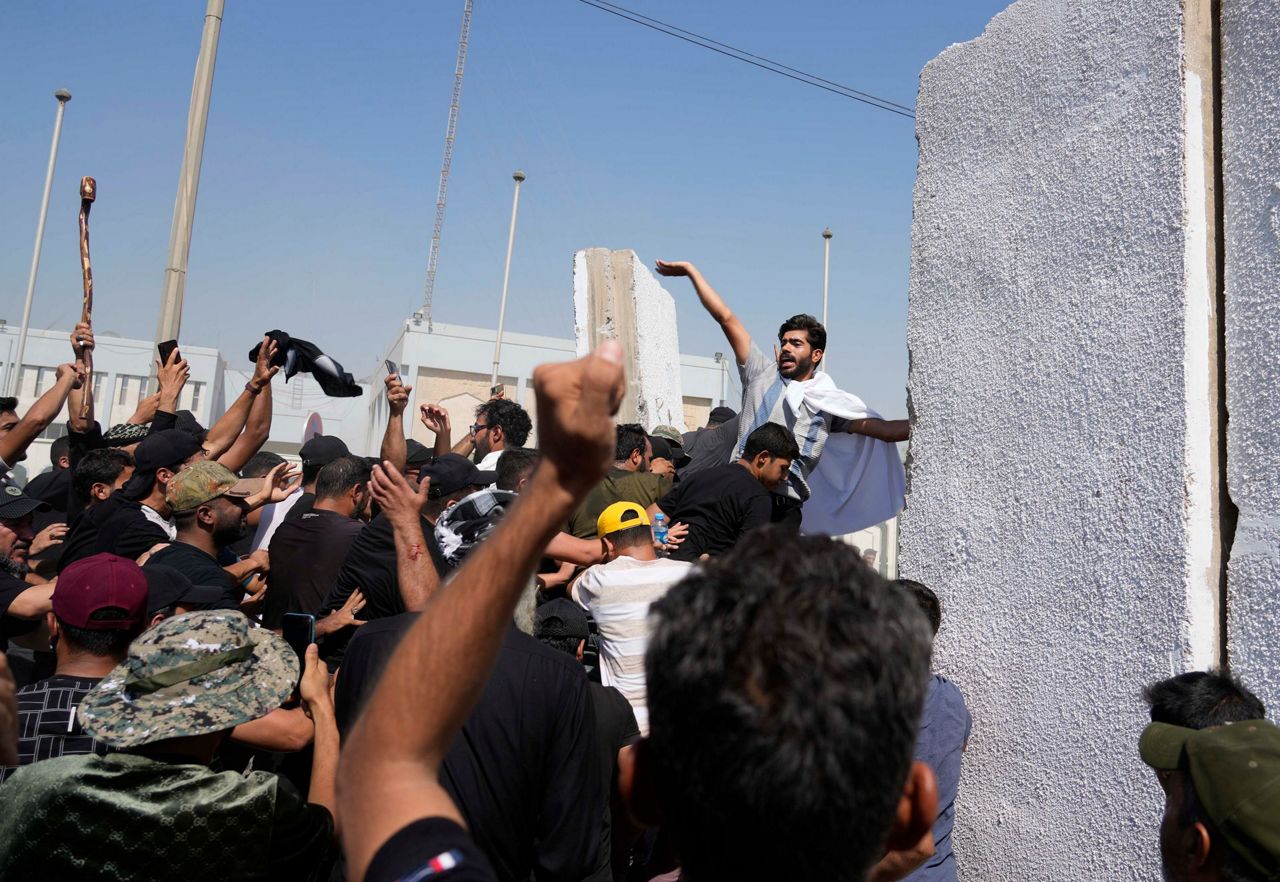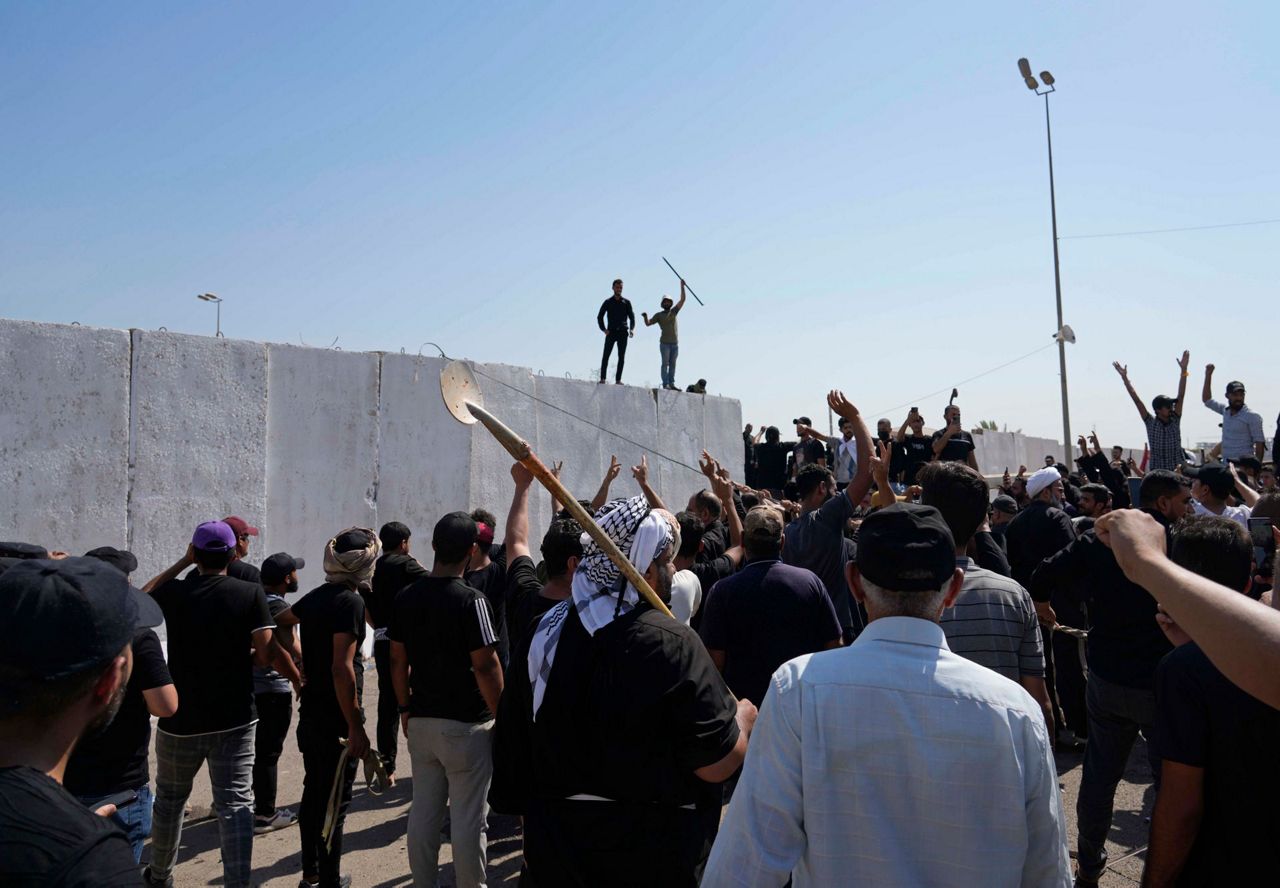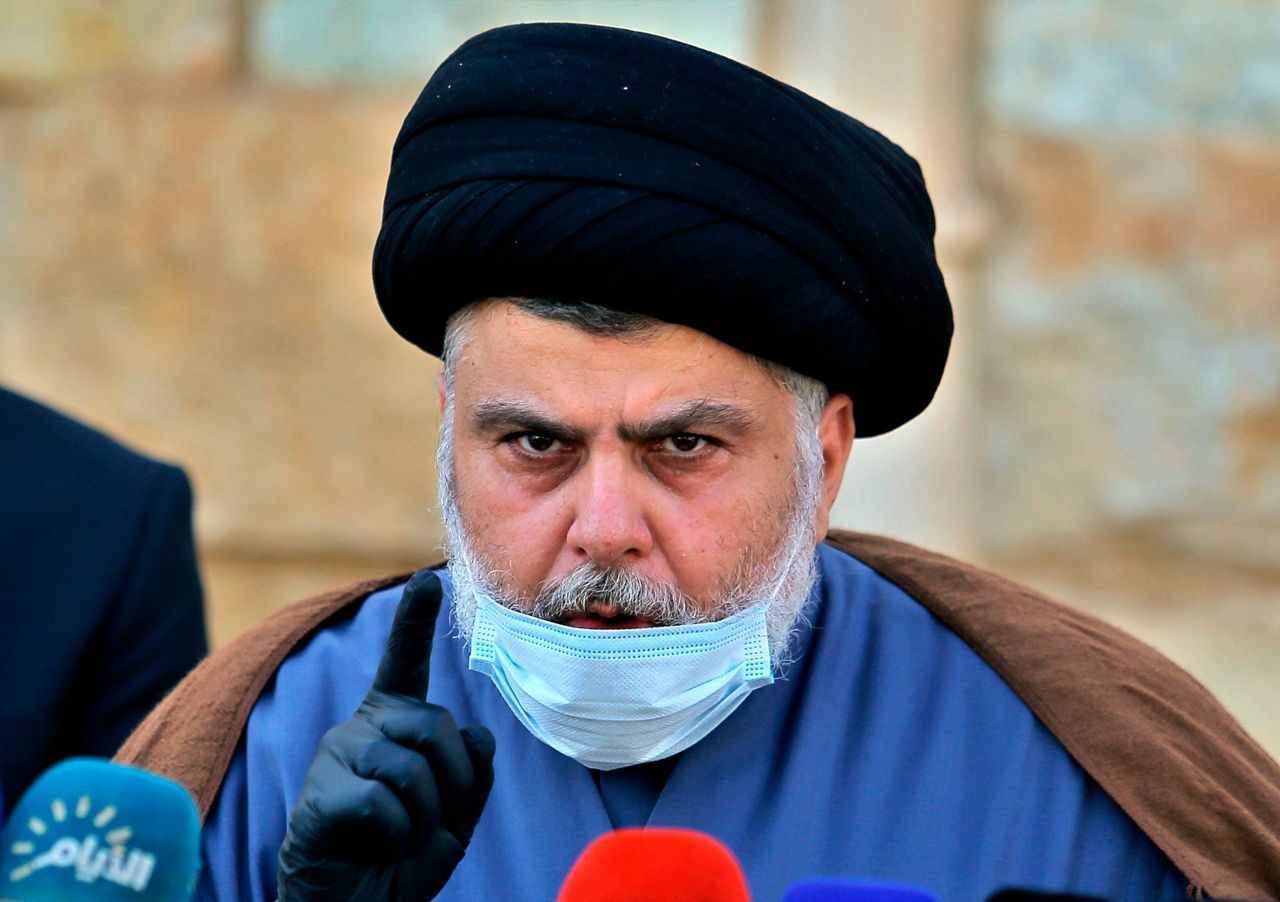BAGHDAD (AP) — An influential Shiite cleric announced Monday he would resign from Iraqi politics and hundreds of his angry followers stormed the government palace in response, sparking violent clashes with security forces in which at least one protester was killed.
Medical officials said at least 12 protesters were also injured by tear gas and physical altercations with riot police in the protests that followed the announcement by cleric Muqtada al-Sadr.
Iraq’s military announced a nation-wide curfew and the caretaker premier suspended Cabinet sessions in response to the unrest.
Iraq’s government has been deadlocked since al-Sadr’s party won the largest share of seats in October parliamentary elections but not enough to secure a majority government. His refusal to negotiate with his Iran-backed Shiite rivals and subsequent exit from the talks has catapulted the country into political uncertainty and volatility amid intensifying intra-Shiite wrangling.
To further his political interests al-Sadr has wrapped his rhetoric with a nationalist and reform agenda that resonates powerfully among his broad grassroots base who hail from Iraq’s poorest sectors of society and have historically been shut out from the political system. They are calling for the dissolution of parliament and early elections without the participation of Iran-backed groups, which they see as responsible for the status quo.
During Monday's violence, hundreds of protesters pulled down the cement barriers outside the government palace with ropes and breached the palace gates. Many rushed into the lavish salons and marbled halls of the palace, a key meeting place for Iraqi heads of state and foreign dignitaries.
An Associated Press photographer heard gunshots being fired and several wounded protesters bleeding and being carried away. Three government officials confirmed at least one protester was killed by gunfire.
Protests also broke out in the Shiite-majority southern provinces with al-Sadr’s supporters burning tires and blocking road in the oil-rich province of Basra and hundreds demonstrating outside the governorate building in Missan.
Iran considers intra-Shiite disharmony as a threat against its influence in Iraq and has repeatedly attempted to broker dialogue with al-Sadr.
In July, Al-Sadr's supporters broke into the parliament to deter his rivals in the Coordination Framework, an alliance of mostly Iran-aligned Shiite parties, from forming a government. Hundreds have been staging a sit-in outside the building for over four weeks. His bloc has also resigned from parliament. The Framework is led by al-Sadr's chief nemesis, former Prime Minister Nouri al-Maliki.
This is not the first time al-Sadr, who has called for early elections and the dissolution of parliament, has announced his retirement from politics — and many dismissed the latest move as another bluff to gain greater leverage against his rivals amid a worsening stalemate. The cleric has used the tactic on previous occasions when political developments did not go his way.
But many are concerned that it's a risky gambit and are worried how it will impact Iraq’s fragile political climate. By stepping out of the political process, al-Sadr is giving his followers, most disenfranchised from the political system, the green light to act as they see fit.
Al-Sadr derives his political power from a large grassroots following, but he also commands a militia. He also maintains a great degree of influence within Iraq's state institutions through the appointments of key civil servant positions. His Iran-backed rivals also have militia groups.
Iraq’s military swiftly announced a nation-wide curfew beginning at 7 p.m. It called on the cleric's supporters to withdraw immediately from the heavily fortified government zone and to practice self-restraint “to prevent clashes or the spilling of Iraqi blood,” according to a statement.
“The security forces affirm their responsibility to protect government institutions, international missions, public and private properties,” the statement said.
Iraq's caretaker Prime Minister Mustafa al-Kadhimi called on al-Sadr to request his followers to withdraw from government institutions. He also announced Cabinet meetings would be suspended.
The cleric announced his withdrawal from politics in a tweet, and ordered the closure of his party offices. Religious and cultural institutions will remain open.
Al-Sadr’s announcement on Monday appeared to be in part a reaction to the retirement of Shiite spiritual leader Ayatollah Kadhim al-Haeri, who counts many of al-Sadr’s supporters as followers.
The previous day, al-Haeri announced he would be stepping down as a religious authority for health reasons and called on his followers to throw their allegiance behind Iran’s Ayatollah Ali Khamenei, rather than the Shiite spiritual center in Iraq's holy city of Najaf.
The move was a blow to al-Sadr. In his statement he said al-Haeri's stepping down “was not out of his own volition.”
Copyright 2022 The Associated Press. All rights reserved. This material may not be published, broadcast, rewritten or redistributed without permission.





